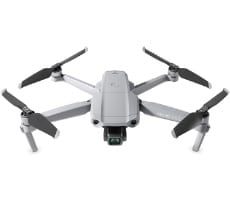HTC One A9 Review: Unlocked With Android Marshmallow
HTC has been accused of copying Apple’s iPhone 6/6s design with its latest smartphone, the One A9. That’s not exactly a fair accusation however, since the iPhone 6 has many of the same design aesthetics as some of HTC’s previous One flagship phones, particularly the One M7 which launched in 2013. Regardless of where the design inspiration for the One A9 originated, one thing is certain: the One A9 is a good-looking smartphone with an all-metal unibody design and four attractive colors, which include Deep Garnet, Carbon Gray, Opal Silver, and Topaz Gold.
All drama aside, the HTC One A9 is a mid-range handset that is powered by Qualcomm’s octa-core Snapdragon 617 processor. This processor includes an integrated Snapdragon X8 LTE controller. You’ll also find a 5-inch edge-to-edge Full HD AMOLED display that’s covered in Gorilla Glass 4 covering the front of the device. And below the display is a combination Home button and fingerprint reader that worked very well in our tests.
HTC is offering the One A9 with two configurations. Our test device features 3GB of RAM with 32GB of Flash storage, though a version with 2GB of RAM and 16GB of storage is also available. In either configuration, storage is expandable up to 2TB thanks to a microSD expansion slot. Other key features include a 2150mAh battery, HTC BoomSound, and a 13MP rear camera with phase detection autofocus, optical image stabilization, and RAW capture capabilities. The One A9 is also the first non-Nexus smartphone to ship from the factory with Android 6.0 Marshmallow.
Before we dive in to the hands-on review, check out our video above, then we can take a closer look at the full specifications of the HTC One A9:
|
Processor |
Qualcomm Snapdragon 617, octa-core 64-bit, 4 x 1.5GHz + 4 x 1.2GHz |
|
Display |
5.0 inch, Full HD 1080p, Corning Gorilla Glass 4 |
|
Memory |
Configuration 1: ROM: 32GB RAM: 3GB Expandable: microSD up to 2TB Configuration 2: ROM: 16GB RAM: 2GB Expandable: microSD up to 2TB |
|
OS |
Android 6.0 with HTC Sense |
|
Camera |
Main camera: 13MP with sapphire cover lens f/2.0 aperture, auto focus, BSI sensor OIS (Optical Image Stabilization) 1080p video recording Front camera: HTC UltraPixel f/2.0 aperture, fixed focus 1080p video recording |
|
Network |
2G/2.5G - GSM/GPRS/EDGE: 850/900/1800/1900 MHZ 3G UMTS Varies by market 850/900/AWS/1900/2100 MHZ EMEA / Asia 4G LTE FDD: Bands 1, 3, 5, 7, 8, 20, 28 TDD: Bands 38, 40, 41 Americas 4G LTE with Voice LTE (VoLTE) FDD: Bands 2, 3, 4, 5, 7, 12, 13, 17, 29 |
|
Connectivity |
Internal GPS antenna + GLONASS Bluetooth 4.1 Wi-Fi: 802.11 a/b/g/n/ac (2.4 & 5 GHz) |
|
Ports and Expansion |
3.5 mm stereo audio jack micro-USB 2.0 (5-pin) port |
|
Sensors |
Fingerprint sensor Ambient light sensor Proximity sensor Motion G sensor Compass sensor Gyro sensor Magnetic sensor |
|
Battery |
2150 mAh with Quick Charge 2.0 support (forward compatible with Quick Charge 3.0) HD video playback: up to 12 hours Audio playback: up to 60 hours Internet use on Wi-Fi: up to 9 hours Talk time on 3G: up to 16 hours Standby time: up to 18 days |
|
Size and Weight |
145.75 X 70.8. X 7.26 mm, 143g |
|
Additional Features |
Premium all-metal unibody Fingerprint-based security RAW image capture Hyperlapse video creation Dolby Audio and Hi-Res Audio |
|
Colors |
Opal Silver, Carbon Grey, Deep Garnet, and Topaz Gold |
|
Price |
$399 to $499 - Find It At Amazon |
When HTC launched the One A9, the company originally offered it for $399. At the time of launch we felt that price was a bit high, particularly if you compare to other unlocked smartphones such as the ASUS ZenFone 2 ($300), which includes a 2.3GHz quad-core Intel Atom Z3580 processor and 64GB of storage, or the OnePlus 2 ($389), which sports a 1.77GHz Snapdragon 810 and 64GB of storage. Then on November 7, HTC increased the price of the One A9 to $499 (though street prices are slightly lower). This was a quizzical move, because as you'll see a little later, the performance of the device isn't as strong as you might expect.








